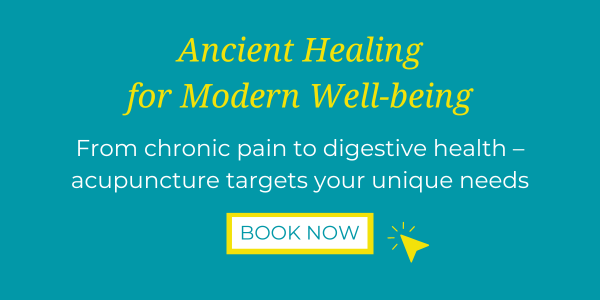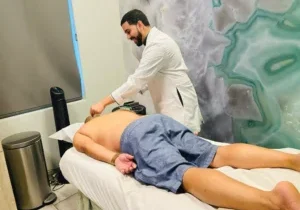Does Acupuncture Hurt? Kissimmee Seniors’ Insights
So, you’re curious about acupuncture but worried about the needles? Many people wonder, does acupuncture hurt? It’s a valid question, especially if needles aren’t your thing. This article addresses those concerns, describes what acupuncture feels like, and offers tips for a comfortable acupuncture session. We’ll also explore factors influencing sensation, specific health conditions, and what happens during an acupuncture session.
Understanding Acupuncture
Acupuncture, a cornerstone of Traditional Chinese Medicine (TCM), involves inserting thin needles into specific acupuncture points on your body. These acupuncture points lie along meridians, energy channels called “qi.” Restoring the balance of qi promotes healing and well-being.
Does Acupuncture Hurt: Addressing the Big Question
The anticipation of needles can be scarier than the actual experience. Does acupuncture hurt? Usually, no.
The sensation is often described as mild pressure, tingling, or a dull ache. Some people feel nothing at all. Let’s explore why.
What Influences the Sensation?
Several factors influence how acupuncture feels. Your acupuncturist’s technique, the specific acupuncture points used, and your individual pain tolerance all play a role.
Some areas are naturally more sensitive. People who fear needles may perceive more discomfort.
A 2023 study found most pediatric acupuncture patients reported minimal pain. Your existing health condition matters, too. Pain or inflammation can temporarily increase sensitivity in specific areas.
Acupuncture for Different Conditions: Does It Hurt More?
Acupuncture effectively treats various health conditions. Some people believe it hurts more when used for certain issues, but this isn’t true.
Discomfort isn’t directly tied to your condition. It’s about your point sensitivity, perception, and the acupuncturist’s skill.
For example, acupuncture can treat menstrual cramps. The sensation is generally mild, sometimes producing soothing warmth as energy flow improves.
What to Expect During an Acupuncture Session
Your first acupuncture session begins with a consultation to review your medical history, pain areas, lifestyle, and wellness goals. The practitioner uses this information to determine the best treatment approach. They’ll select acupuncture points based on your symptoms, potentially using diagnostic methods like tongue or pulse assessment.
Here’s what to expect during the needle treatment:
- Needle Insertion: Sterile, single-use, stainless steel needles are always used. The practitioner gently inserts these hair-thin needles, causing a tiny, often imperceptible prick.
- Rest and Treatment: You recline comfortably, fully clothed, for 15-30 minutes while the treatment takes effect. Many people enter a relaxed state or fall asleep. Acupuncture often leads to relaxation, sometimes causing emotional release through tears. Any initial pain usually subsides once the needles are set. Acupuncture is generally safe, even during pregnancy, when performed by a licensed acupuncturist. However, practitioners avoid specific points near meridians associated with labor.
- Additional Therapies (Optional): Other therapies, such as moxibustion, massage, or osteopathic treatment may be incorporated.
- Needle Removal and Aftercare: Needles are removed painlessly. The practitioner will discuss any sensations, schedule the next appointment, and provide aftercare advice.
Tips to Minimize Discomfort
While discomfort is minimal, these tips can enhance relaxation:
- Communicate: Discuss concerns with your practitioner. This helps address anxieties before or during treatment.
- Choose an Experienced Acupuncturist: A licensed, experienced practitioner uses proper technique, minimizing discomfort and the risk of side effects. Side effects, such as fatigue, pain at acupuncture points, bruising, drowsiness, or mild nausea, vary among individuals. More severe, yet rarer, risks from improper technique include infection or miscarriage due to unintentional labor stimulation. Any pain typically subsides quickly.
- Relaxation Techniques: Practice meditation or guided imagery to reduce needle anxiety.
FAQs about does acupuncture hurt
Does acupuncture hurt the first time?
Your first session might feel different due to new sensations or anxiety. The initial prick disappears quickly once the needle reaches the acupressure point.
Acupuncture typically causes minimal pain, though various sensations can occur. These can range from a barely-there prick to pressure, pulling, soreness, warmth, or coolness.
Sensations vary per session and individual. This depends on your body, point location, energy flow disruptions, and your perception. Focus on healing progress, not specific sensations, to gauge acupuncture’s effectiveness.
How does acupuncture feel?
Acupuncture often creates unique sensations, commonly described as tingling, mild pressure, or warmth. Most people find these sensations comfortable, even relaxing, and rarely painful.
Acupuncture needles are solid and incredibly fine, unlike hollow hypodermic needles. You barely feel the needle, and most sensations come from stimulating nerves. For chronic issues like neck pain, low back pain, headaches, or menstrual pain, practitioners recommend weekly visits lasting 50-80 minutes, adjusting based on symptom improvement.
What are the disadvantages of acupuncture?
While acupuncture is safe, there are some potential downsides. Mild bruising or soreness at the needle sites can occur. Infection is rare if sterile needles are used.
Share your medical history with your practitioner. Certain health conditions, pregnancies, or use of blood thinners might require treatment modifications. In some cases, acupuncture isn’t recommended.
Do people cry during acupuncture?
Acupuncture needles target specific body areas along meridian lines, aiming to restore energy (“qi”) flow. The goal extends beyond pain management to harmonize the body’s energy.
Acupuncture addresses physical, emotional, and spiritual well-being by removing blockages in life force. As you relax and healing begins, emotional release may occur, sometimes resulting in tears.
Embrace these emotions; they contribute to the holistic reset alongside the needlework’s energy balancing. Incorrect needle insertion by untrained individuals can cause injuries.
Conclusion
So, does acupuncture hurt? Generally, no. Any discomfort during a proper acupuncture treatment is minimal and temporary. The experience itself can actually alleviate your symptoms.
Acupuncture, a component of Traditional Chinese Medicine, may improve numerous health conditions and promote overall wellness. Consider exploring how acupuncture can improve your health, inside and out. Consult a qualified practitioner at C3 Wellness for personalized advice and treatment plans. Start your healing journey today!


